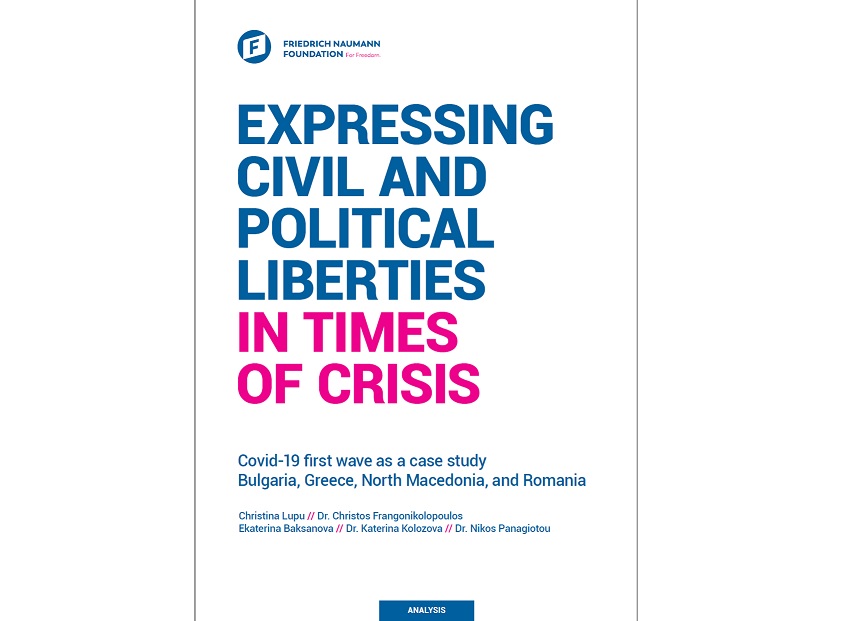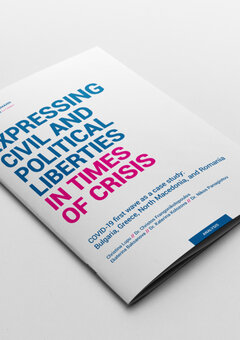COVID-19 Crisis
Expressing Civil and Political Liberties in Times of Crisis

The coronavirus pandemic has brought unprecedented challenges to our societies. These challenges have not only had health or economic aspects, but they also relate to the form and means of governance in a middle- and long-term timeframe.
During the first wave of the pandemic, Europe adopted extraordinary measures in the “war against an invisible enemy”. A state of Emergency was declared across virtually all of Europe, with governments seizing exceptional powers in order to promptly and effectively counteract the growing spread of the virus. This crisis-reaction allowed for a well-coordinated, centrally-led national approach to effectively address the unprecedented challenge that found both citizens and governments unprepared. In many places, however, fragile democracies developed worrisome trends in governance during the state of emergency.
Broadly speaking, the rights and freedoms of citizens have greatly diminished under the newly established crisis-state order, and unprecedented restrictions on the right to travel, gather together, and spread information/disinformation were introduced. These were often taken to the extreme, which blurred the line between medically justified measures and actualized restrictions; between spreading misleading news and restricting free expression; between crucial data analysis and personal privacy. To a large extent, the motivation to protect public health prevailed over human rights. In order to justify personal hardship, governments promoted collectivism as the only viable response to the crisis. Curbing individual rights, including individual choice, has been promoted as the new, existential necessity.
Although the government’s anti-COVID-19 measures did not always meet the fundamental criteria for necessity, proportionality, and non-discriminative character, the society at large was not alarmed by such infringements on human rights. Some quietly acquiesced, while others enthusiastically supported the limitations placed on basic freedoms. This evidenced a general tolerance towards the centralisation of power and the breach of the principles of the liberal democracy we believe in. Given the high rates of approval for the actions taken by governments against COVID-19, up to the point of the production of this research (March-September 2020), it seems that those who were alarmed by various governments’ abuses of power were in fact in the minority. This poses not only an immediate threat to our democracies, but a future threat, as similar tendencies, across different contexts, may re-emerge in the future.
The lessons learnt from the first wave of the pandemic could provide a key as to how to adapt to the second wave. The manifold clashes of governments with their obligations to preserve individual rights and the critical public response, will surely lead to a more reasoned and citizen-oriented response.
This research on the limitation of civil and political rights in Bulgaria, Greece, North Macedonia, and Romania during the first wave of the pandemic focuses on three main pillars: it gives a first-hand insight into the context in which the various governmental measures were introduced; the extent to which those individual rights were affected; and the shape and strength of the citizen’s response to the government-led measures.
-

Expressing Civil And Political Liberties in Times of Crisis
The analysis is available in an electronic copy below.
